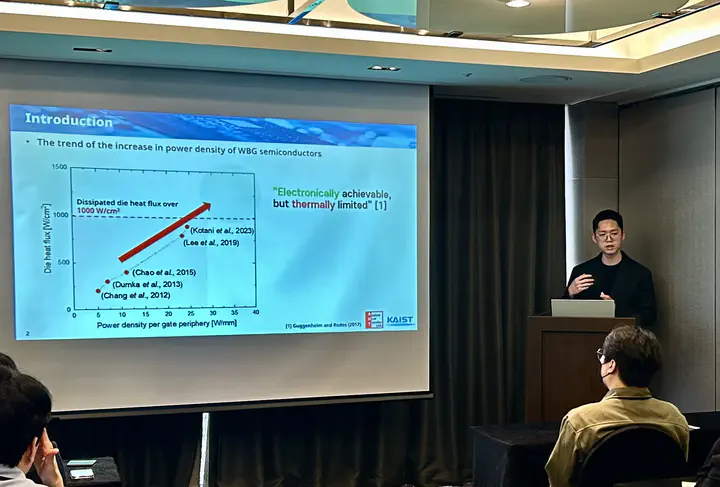Thermal Performance Prediction of Liquid-cooled Manifold Microchannel (MMC) Heat Sinks with Plate Fins
 My first conference presentation. I was kind of nervous, but excited
My first conference presentation. I was kind of nervous, but excitedAbstract
Liquid-cooled manifold microchannel (MMC) heat sinks have drawn attention as a promising cooling solution to high performance electronic systems such as laser diodes, DC/DC converters, and inverters. Due to heat transfer enhancements attributed to developing flow and jet impingement, MMC heat sinks have higher heat transfer coefficients than conventional microchannel heat sinks. However, previous 1-D parallel flow models have neglected the heat transfer enhancement induced by jet impingement, resulting in inaccurate thermal performance predictions for MMC heat sinks. This paper proposes a new semi-analytical heat transfer model that takes into account the heat transfer enhancement due to developing flow and jet impingement, leading to more accurate thermal performance predictions for MMC heat sinks. The model proposes a Nusselt number correlation that is a function of dimensionless parameters, including dimensionless flow length, channel aspect ratio, and jet Reynolds number. A parametric study is conducted using 3-D numerical simulation to obtain the undertermined coefficients of the correlation. Subsequently, the total thermal resistance of MMC heat sinks is predicted using the effectiveness-NTU approach. The results indicate that the predictions of the model show good agreement with experimental data to within 20%.